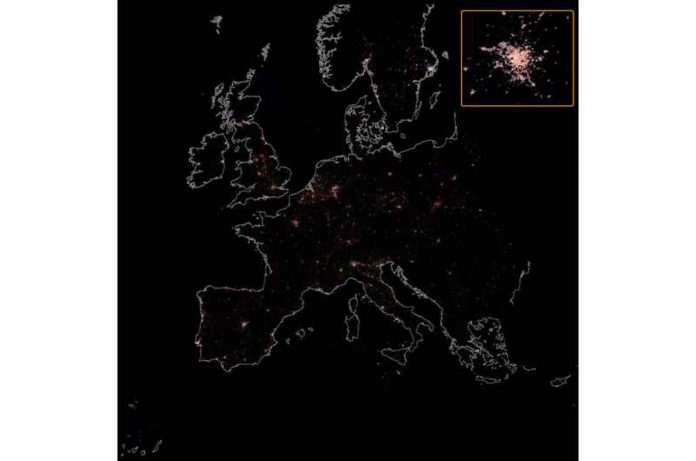A team of Exeter University researchers discovered that the slow conversion of outdoor lighting to LEDs across much of Europe has resulted in the development of a new type of light pollution. The group describes their study of photographs taken from the International Space Station in a paper published in the journal Science Advances.
Previous research has shown that artificial light in natural settings has a negative impact on both wildlife and humans. Sleep disruptions have been observed in both animals and humans, according to research. In addition, many animals can become confused by light at night, posing a threat to their survival.
The researchers noted in this new effort that officials in many countries have been promoting the use of LED lighting over traditional sodium lighting along roads and in parking areas due to LEDs’ lower energy demands. The researchers obtained photographs taken by astronauts aboard the ISS from 2012 to 2013 and from 2014 to 2020 to learn more about the impact of this change. The photographs cover a wider spectrum of light wavelengths than satellite images.
The researchers were able to determine which parts of Europe had made the switch to LED lighting and to what extent. They discovered that the United Kingdom, Italy, and Ireland, for example, have seen significant changes, whereas Austria, Germany, and Belgium have seen little change. They discovered that LEDs emit light at different wavelengths than sodium bulbs. The increase in blue light emissions in areas that have converted to LED lighting was noticeably different.
Blue lighting has been found to interfere with the production of melatonin in humans and other animals, which disrupts sleep patterns, according to the researchers. According to the researchers, an increase in blue light in LED-lit areas may have a negative impact on the environment as well as the people who live and work in such areas. They recommend that officials examine the impact of LED lighting before proceeding with new projects.

